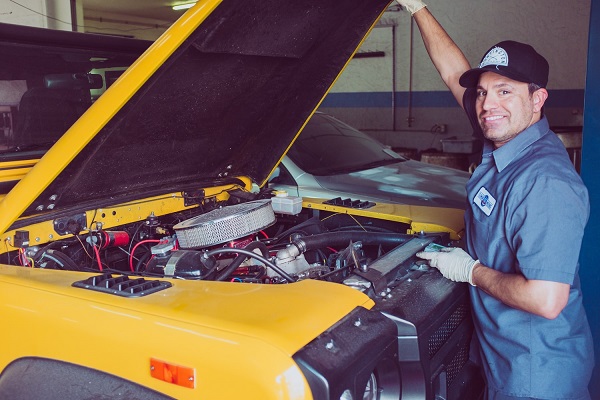
Trying to find a new vehicle can be a stressful (and somewhat scary) process – especially if you are a first time buyer.
You need to be diligent in searching through the listings to find the car that fits your budget. Additionally, you’re a novice speaking with salespeople who do this every single day. The most fearsome part of the process is being sure that the car you buy doesn’t come with any hidden issues that could be a problem down the road (no pun intended).
Unfortunately, many of us end up with a vehicle that gives us nothing but trouble at least once in our life.
But how do you know if your car is just a vehicle in need of some repairs or a certified lemon?
Is there a difference?
Yes, there is a major difference.
It is estimated that about 5% of all cars sold in the United States are actually lemons – meaning they are defective and will have continuous problems that impede the functionality or safety of the vehicle. That means that about 750,000 vehicles that are purchased or leased every year are not mechanically sound!
So, what does it mean if you do have a lemon?
If you think that you may have a lemon on your hands, there is no need to worry. There are laws in place to protect you as a consumer so you can receive rightful compensation or a replacement vehicle from the manufacturer.
Without further ado, here is everything you need to know if you have purchased or leased a lemon.
Understand Your Rights
First of all, you need to understand what exactly lemon law is and what it means for you as the owner of a defective vehicle.
Every state has varying laws, but the purpose of lemon law is to hold manufacturers accountable if they have produced a defective vehicle that requires constant repairs, of which are ultimately unsuccessful.
Overall, a vehicle can qualify as a lemon by meeting the following criteria:
- Has a “substantial” defect that impairs its safety, functionality, or value.
- This defect(s) must be apparent within the warranty period.
- Defect(s) must have a “reasonable” number of repair attempts from a manufacturer-certified mechanic.
- The vehicle must be out of commission for a set number of days due to needs of repairs.
Some important details that vary from state to state include:
- Number of repair attempts that qualify as “reasonable”.
- Number of days the car was unusable.
- Number of months & mileage that define lemon law presumption.
- Whether lemon law applies to used vehicles.
While the overarching theme of this legislation remains the same, there may be little details that could change depending on the state in which the vehicle was purchased.
To give an example, California lemon law applies to used vehicles, but there are some restrictions. For businesses, the law only applies to used vehicles under 10,000 lbs. and are used for business purposes – where five or fewer vehicles are registered to the company. This is where the law can get a little hazy, and consumers in this situation would be wise to seek out a specialized lemon attorney in California.
Make Sure You Have the Paperwork
You need to be sure that your vehicle meets the state’s criteria which would qualify it as a lemon. Again, these numbers change depending on the state’s legislation, but generally a vehicle must have at least two repair attempts and be out of commission for a certain amount of time within the warranty period.
Of course, you will need to have the paperwork to back this up if you are going to get any of your money back.
First of all, you will need to corroborate the dates of repairs and issues with your warranty period. Take a look at the warranty that you received at the time of your purchase or your lease agreement to see the exact timeline the warranty is in effect.
Second, you will need to have a record of all repair attempts. Lemon law also requires that all repairs are made by a manufacturer-certified mechanic. You must have a comprehensive record of why the vehicle was brought in, what repair attempts were made, and how long those repairs took.

Finally, you will need to make sure you meet the criteria in terms of dates and repair attempts. Again, this number may change depending on your state’s laws, so do your research first.
Contact a Lemon Law Attorney

Once you have all of the paperwork in place and believe you have a strong case against the manufacturer, it is time to contact an attorney. It is best to work with a lawyer who specializes in lemon law or automotive claims, since they will be the most knowledgeable on the subject.
Your lawyer will then file a claim against the manufacturer and fight for your right to receive a full buyback – or a replacement vehicle of the same value. If they are not able to meet a suitable agreement, then the case can be taken before a judge.
Now, if you look online, you may see class action lawsuits from time-to-time against car manufacturers for defects. These can seem enticing, since they do not require you to hire an attorney and you do not have to be present in court for the trial or hearing.
However, the payout from class action suits is typically far lower than what you could receive with an attorney.
In one recent case with Nissan, consumers only received a $1,000 voucher to go toward repairs.
If you want to receive a full refund for not just the cost of your vehicle, but other additional fees (including repair costs or payments for towing if your car broke down because of the issue), you will want to hire your own attorney.
Conclusion
You don’t need to feel totally helpless if your newly-purchased car is giving you nothing but trouble. There is a very good chance that you could get all of your money back if the manufacturer sold you a lemon.
To subscribe to our posts, enter your email into the subscription box to the right if you are on a desktop computer and at the bottom of the page if you are on mobile. You can also follow us on Instagram @highperformancejunkies
Other articles you may be interested in:
minor car scratch repair | deep scratch and key marks repair guide | must haves for your winter car emergency kit | car start problems | transmission clunks going into gear

1 thought on “Here’s Exactly What to do if You Bought a Lemon Car”